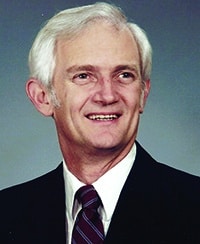In Mississippi, where I spent my teenage years, one can acquire a driver’s license at the age of 15. Despite its legality, my father thought I should not get a license until I was 16. It was a long year.

Wade Paris
Decades later, it became my joyous privilege to teach my four children to drive and help them get a driver’s license. Once or twice while I was serving as pastor, I was offered the opportunity to teach a parishioner how to drive. It made me feel a little guilty, but I always managed to avoid that privilege. Like most adults these days, I have spent thousands of miles and hours behind the steering wheel of a car.
Given my driving experience, I read with great interest the projections regarding driverless automobiles.
A recent article in the Kansas City Star Business Section reported on a driverless Google car. There is a legal battle going on about it. (We Americans take everything to court.)
Can a computer be an automobile driver? If so, can a patrolman stop it and give it a ticket? Must a computer-driven car have an accelerator and a brake?
I am wondering if traffic signals like speed limits and approaching road conditions will be automatically beamed to the computer/driver. If so, will the computer in the auto be required to obey those signals? If the answer to those questions is yes, then for all practical purposes this computer driven auto of the future will have a conscience.
On the one hand, these future cars would seem to be an improvement. Many accidents come through driver error. On the other hand, having a conscience has not been extraordinarily successful for humankind as a whole.
Somehow we find ways of circumventing our consciences. For example, Jesus instructed us to feed the hungry. Our conscience tells us we should do so, but many refuse saying that it perpetuates sloth. “If you’re hungry, get a job.” But little children are not allowed to work. Per Jesus’ instructions, our consciences tell us to love our neighbor. “But wait,” you say, “my neighbor isn’t very lovable.”
It would be easy to adjust an automobile computer conscience — just add an app. Maybe that’s what we humans have been doing — changing the apps in our conscience. Obviously, this is all tongue-in-cheek, but think about it. It’s intriguing.
Wade Paris writes a weekly syndicated column, “The Shepherd Calls.”






